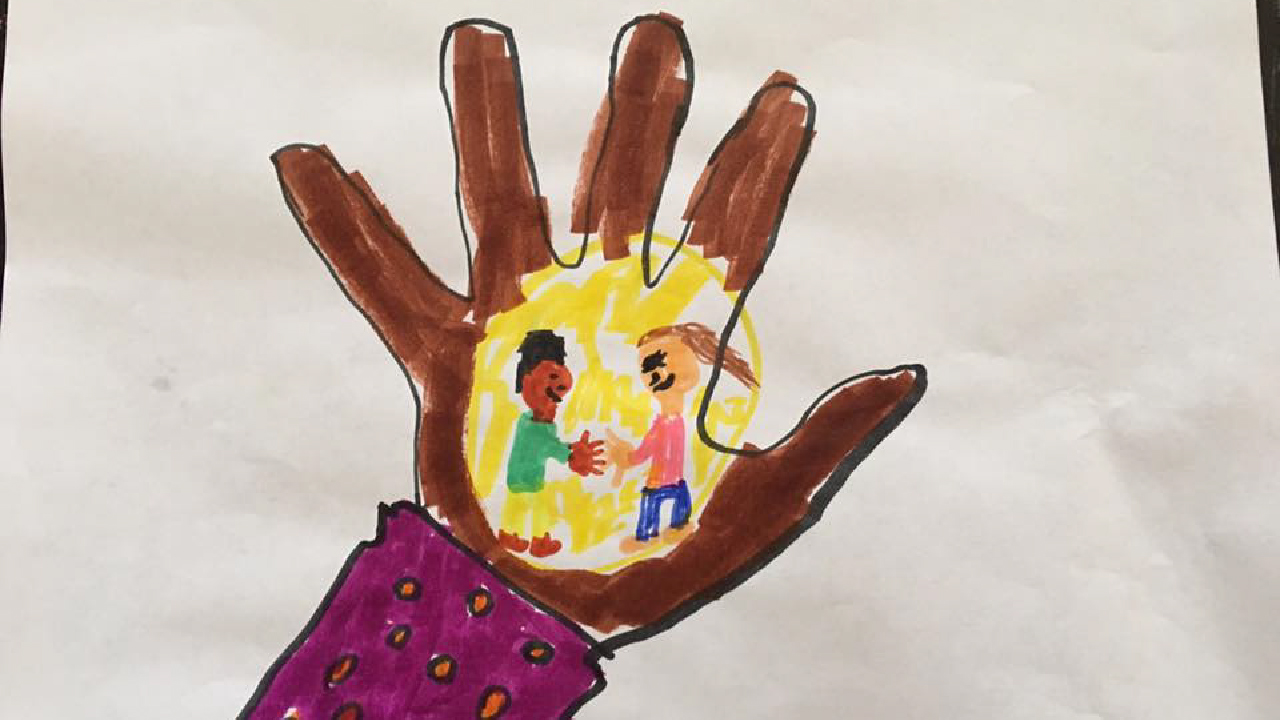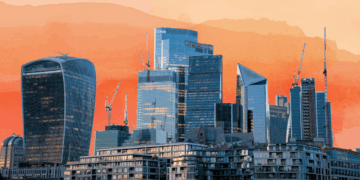This article was written in collaboration with Nate Heasley.
The world is in the grip of a refugee crisis. Millions of people are fleeing violence in their home countries and seeking refuge over borders and across seas. According to the UNHCR, 65.6 million people were forcibly displaced worldwide by war, violence and persecution at the end of 2016 — more than at any time in the UNHCR’s seven-decade history.
What happens to the people who escape violence? Where do they go? And who steps in to help?
Aside from global agencies and support networks, there are countless groups and small nonprofit organizations offering invaluable help and support at local level. One of them is RiF (Refugee and Immigrant Fund), which was established in 2006 to provide welcoming support for refugees and asylum seekers arriving in New York City.
RiF used workspace and training facilities at Fordham College and Brooklyn Grange rooftop farm, but didn’t have the funds for their own office in New York. That is, until they discovered All Good Work — a foundation that matches social impact organizations with workspaces who have room to spare.
Through the program, RiF now has a home at coworking space Alley New York, which is enabling the team, led by founder and Executive Director Maria Blacque-Belair, to work in a more productive environment, meet with volunteer lawyers, gain valuable connections… and enjoy great coffee!
Here’s their story.
Allwork.Space: Tell us about your organization and how it all started.
Maria Blacque-Belair: RIF Asylum Support is a two-person nonprofit that serves as a navigator for refugees seeking asylum in NYC. Asylum seekers are people who fled persecution in their home countries due to their sexual orientation, gender identity, political affiliation, race or religion. When they arrive in New York, they have to navigate the complex asylum legal process and search for a job on their own — all while trying to heal from past trauma.
We provide quick, easy access to legal consultations, job fairs to help them become self-sufficient, info on health and educational opportunities in the city, community-building opportunities, and a job training fellowship in urban farming in partnership with Brooklyn Grange rooftop soil farm.
What motivates you to do the work you do?
For many years, I was a relief worker involved in major humanitarian crises such as the Rwanda Genocide and the war in Bosnia. I worked and lived in Sarajevo, which was besieged at the time, so we were shelled everyday. We had no electricity or water and we had to run really fast when we crossed the streets to avoid snipers. I also worked in orphanages in Romania, which were in horrible condition, with children totally deprived of medical and emotional care.
When I returned to New York, I wanted to start a family and I adopted twins in Morocco, where I was born. A boy and a girl who are now about to go to college!
I was working for an organization for survivors of torture in Jackson Heights in Queens, one of the most diverse immigrant neighborhoods in NYC. There I realized that there were many people that had fled their countries to seek asylum in New York with the goal to rebuild a safer life. I was very sensitive to their situation because I had worked and lived in war-torn countries and I knew first-hand what these people fled from.
But most importantly, I realized that there was no structure or organization available to orient and support them when they first arrived in the city, alone and traumatized. Imagine yourself, having to abruptly leave your home, loved ones, everything you know, to find yourself in a totally foreign land, where you might not even speak the language, and with no money in your pocket? What would you do?
What drew you to the All Good Work residency program?
Last year, Carol Skyrm, who is on RIF’s board, told us about All Good Work. We were so happy because we run a lot of activities from Fordham College and also from the Brooklyn Grange rooftop farm, where we train refugees in urban agriculture — but we did not have an office of our own for the staff and volunteers. We have limited funding at RIF and therefore we cannot afford high rent, which is often the reality in NYC.
We were so happy when Nate Heasley contacted us to let us know that we had been accepted at Alley New York in the Chelsea area. It is an amazing, welcoming place where we felt at home right away. The staff and residents alike are extremely friendly, with cute dogs running around. Moreover, it is extremely easy to book a room.
How has working at Alley New York changed or impacted your work?
For RIF, having the chance to reside at Alley New York had a major impact: It is much more productive for our staff to work there as opposed to a noisy cafeteria at Fordham College! It’s also much easier to book a room for business meetings with partners and volunteers.
We also are able to have our volunteer lawyers provide pro bono legal work for our refugee clients, which is amazing. If we need help to print documents, Whitney and the other Alley New York staff are always willing to help with a big smile. Our refugee clients have also enjoyed having a good coffee and the cereals that are offered at Alley! (For some it may mean the only meal of the day.)
Would you like to share any exciting plans coming up over the next few months?
In the year to come, we hope to establish the first NY Welcome Center for Asylum Seekers. We want the center to also serve as a job and business center where our refugees can meet face-to-face with employers. Should we have enough funding, we hope to establish this center in Industry City at Sunset Park, which has innovative food businesses that could offer first jobs for our refugees.
In the meantime, we are really happy to have Alley New York as a home and we are grateful to All Good Work for supporting our work!
*Feature image grabbed from RiF’s Facebook page.



 Dr. Gleb Tsipursky – The Office Whisperer
Dr. Gleb Tsipursky – The Office Whisperer Nirit Cohen – WorkFutures
Nirit Cohen – WorkFutures Angela Howard – Culture Expert
Angela Howard – Culture Expert Drew Jones – Design & Innovation
Drew Jones – Design & Innovation Jonathan Price – CRE & Flex Expert
Jonathan Price – CRE & Flex Expert













